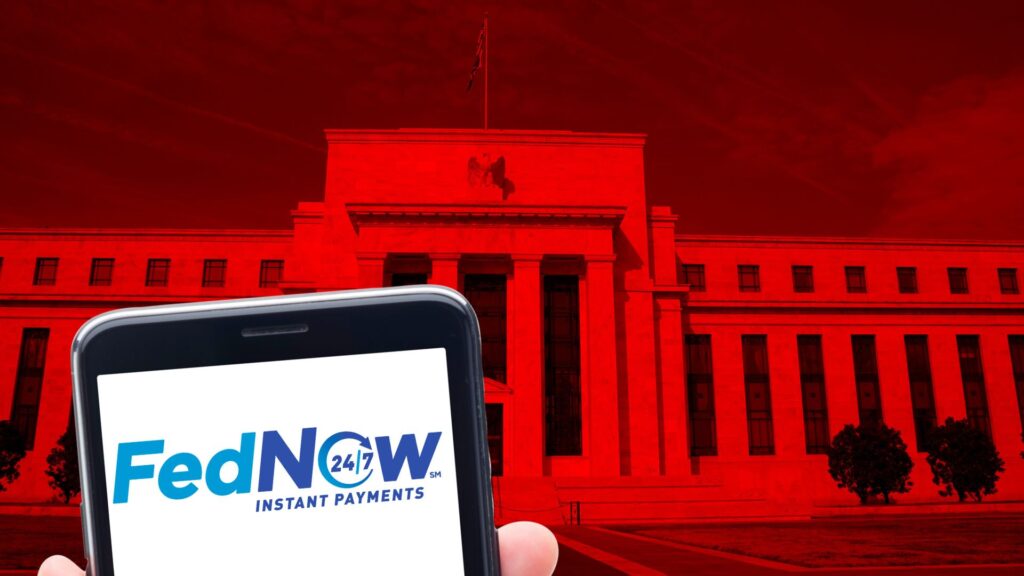
The Federal Reserve’s real-time payment and settlement service, FedNow, has been a subject of considerable discussion within financial circles. While it’s been lauded for its promise of instantaneous transactions, there are concerns about the potential implications for the broader financial ecosystem, and particularly for cryptocurrencies.
FedNow’s Fraud Prevention Mechanisms
At its inception, FedNow will allow financial institutions to create reports about fraudulent transactions, set transaction limits for specific accounts, and even blacklist certain accounts. However, the specifics of what constitutes fraudulent activity have not been clearly outlined. While this lack of transparency can be justified as a measure to prevent fraudsters from gaming the system, it could also lead to arbitrary account limiting and blacklisting.
The control over these decisions initially lies with the financial institutions, but there is a possibility that this could change in future phases of FedNow. This could eventually give the Federal Reserve absolute control over individual bank accounts, a prospect that is unnerving to consider.
Future Phases of FedNow
The future phases of FedNow are shrouded in mystery, with no clear timelines or details about what features will be included. However, it has been revealed that FedNow could potentially evolve into a Central Bank Digital Currency (CBDC), enabling the US dollar to compete with China’s CBDC. The service might also allow the setting of conditions under which a transaction would be automatically rejected, suggesting the possibility of programmability, a key feature of CBDCs.
Moreover, the support for tokenization in future phases implies that real-world assets could become tokenized on its network. If this happens, the ownership of assets could shift entirely to the Federal Reserve, a significant shift from traditional ownership models.
FedNow vs. Crypto
The question that’s been on everyone’s mind is whether FedNow will affect cryptocurrencies. The answer isn’t straightforward and largely depends on the type of cryptocurrency in question.
FedNow was announced shortly after Facebook’s Libra, implying a potential effort to replace stable coins and other forms of private money. However, it should be noted that most cryptocurrencies are not considered money by U.S. regulators, but commodities or securities. The only cryptocurrencies that U.S. regulators consider as private money are stable coins.
The Federal Reserve has specified that FedNow will co-exist with private sector options. However, it remains unclear if this coexistence extends to stable coins. If stable coins are safe from FedNow, it could benefit stablecoin issuers, particularly those based in the United States. Conversely, if stable coins are affected by FedNow, it could significantly impact the crypto market, as almost every crypto trades against a stablecoin.
Implications for Financial Freedom
While the effect of FedNow on crypto is of concern, the broader implications for financial freedom are even more significant. The service appears to be a stepping stone towards a CBDC system. Other central banks have already introduced fast payment systems, which initially offer many benefits to the average person, ensuring widespread adoption.
The only escape from these pro-CBDC systems is cryptocurrency. But even this could become compromised if every crypto trades against a stablecoin built on a fast payment system. This highlights the necessity for a decentralized stablecoin that can ensure crypto remains free from external influence. This is not just for people who currently hold crypto, but also for those who will inevitably seek alternatives when the true nature and power of these fast payment systems are fully realized.
Freedom in finance, like any other domain, is not just about the ability to make choices but also about the power to resist control. The introduction of systems like FedNow can bring convenience and efficiency but also carry the risk of centralization and control. As we navigate through this evolving landscape, let us remember that true financial freedom lies in decentralized systems that respect individual autonomy and privacy, and let us strive to uphold these principles in the face of seemingly irresistible progress.
Sources
- Federal Reserve’s FedNow Service
- Coin Bureau “FedNow Explained: Is It The END of Financial Freedom?”




